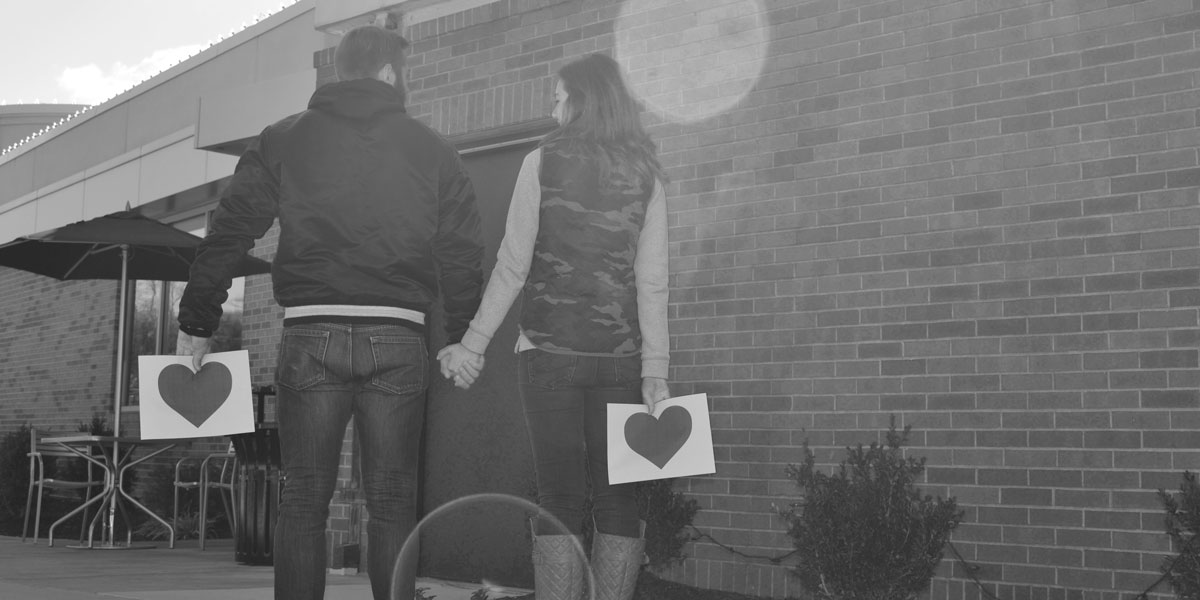Has a lack of independence within relationships created a culture where domestic abuse thrives?
Photo by: Rebekah Rutledge
_________________________________________________
Recently, I received a phone call from an old friend. I answered with a cheerful hello, but his response was a sorrowful, “Did you hear what happened?”
He was referring to an old friend of ours, Jacquelyn Adams, who had been murdered the night before.
Her murderer was her long-time boyfriend.
St. Charles police said Adams, 22, was shot Wednesday, Sept. 10, by her estranged boyfriend, Justin Frister, 32, who then turned the gun on himself and committed suicide. Frister was pronounced dead at the scene and Adams died later at a local hospital.
She didn’t escape.
Adams became a part of the growing domestic abuse statistics.
She did not get to live out her twenties, her thirties, have kids, or grow old; she was not given the option to do those things because someone else decided that she didn’t get to.
According to the National Coalition Against Domestic Violence:
— 1 in 3 women have experienced physical violence by an intimate partner.
— 1 in 10 men have experienced rape, physical violence, and/or stalking by an intimate partner.
— 3.2 million women have experienced severe physical violence by an intimate partner.
— 72 percent of murder-suicides involve an intimate partner and 94 percent of these murder victims are females.
Take that in. Let it sit for a moment.
Domestic violence is running rampant throughout our culture, but it is so overlooked as a problem. That is, until it affects you.
Sadly, the 3.2 million women who have experienced physical violence by an intimate partner are the ones who have reported it, but many women don’t report violent incidents.
Men and women alike have developed an “I can’t live without you” mindset when it comes to relationships, creating a pressure between the two people involved.
When one person is unhappy, they feel they can’t leave because the other person is incapable of being OK without them.
The same thing happens when domestic violence occurs in relationships.
Are our relationships — even non-abusive ones — enabling a culture where domestic abuse can more easily happen?
Our quick-moving culture has created an expectation that relationships will also move just as quickly and so it goes: the first text, a “hang out,” and then Facebook “official.”
Soon, there is no recognition of where one person ends and the other starts.
There is no individuality because the people involved in the relationship have found identity only in the relationship.
So, when the first few fights happen, it’s OK. Then, the fights turn into hateful words and soon enough, things being thrown, but it’s OK because “I love him,” right?
Wrong!
The abuser does not only physically harm their significant other, but they emotionally harm them, as well.
Many victims of abuse believe that if they leave, their significant other will do more harm to themselves, their family, their children, etc. … and so the victims stay with their abusers.
Abusers also make their victims believe they are at fault, often leading victims to believe it, creating in them self-hatred.
We are a needy society. With technology, we are never totally alone because there is constantly a text conversation happening, tweets being liked, and Facebook posts being written.
The same has happened in relationships. No one is ever alone or independent because of this “I can’t live without you” mindset that has been instilled in modern relationships.
Both women and men alike need to be taught to be independent, to put their goals first and to take a step back from their relationship to ensure that it is a healthy one.
This lack of independence that lives within many modern relationships creates an inability to be alone, making it difficult to get out of relationships, especially abusive ones.
It’s time that we become independently functioning individuals while in relationships and while single. A relationship should never make you feel “stuck” or unable to leave.
They should lift you up and give you support, not stomp on your individuality, or even end your life.
Before you jump into a relationship, know how to stand alone.
Know how to be OK with who you are and stand strong in that, it will make any relationship much stronger if you can be your own individual and when a relationship isn’t right, it allows you confidence to leave it and stand alone.
So, hold your own heart and when someone tries to hurt it run, because you are strong and independent and no one can tell you otherwise.
